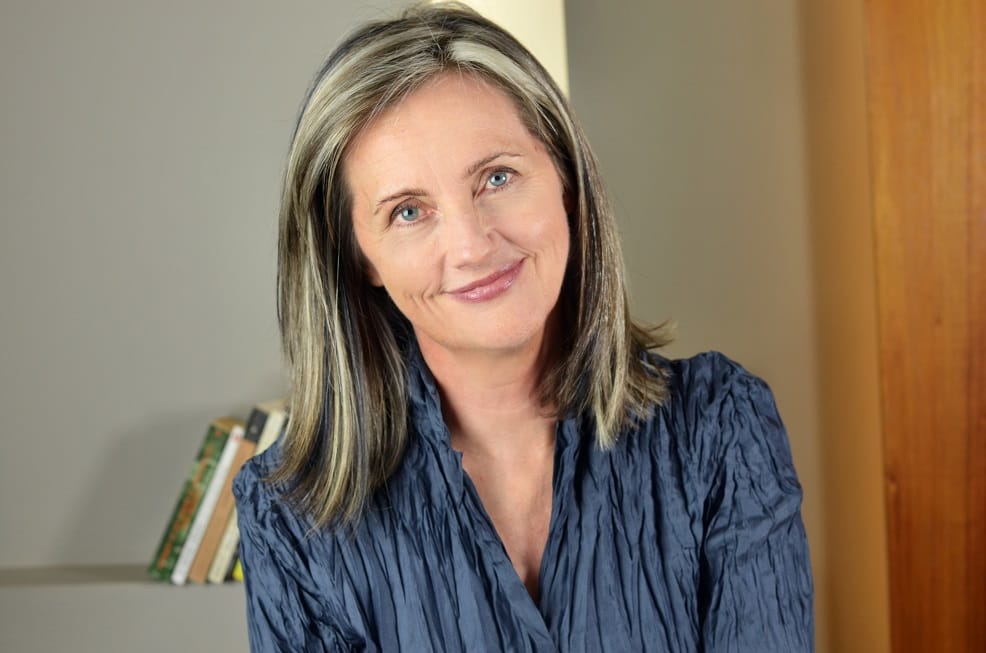
This article was originally published in June 2019 on our ‘Writers on Writers Vic’ page, for our 30th year of operating.
Prior to becoming a YA author, Fiona Wood used to work in marketing and arts management, did some freelance journalism and spent 12 years working as a television scriptwriter penning episodes for some beloved TV shows, hour-long specials and children’s drama. Her first YA novel Six Impossible Things was shortlisted for the Children’s Book Council of Australia Book of the Year, Older Readers, in 2011; and Wildlife, her second novel, won that award in 2014. She collaborated with YA writers Simmone Howell and Cath Crowley in Take Three Girls, which in 2018 was long-listed for the ABIA Book of the Year for Older Children and was shortlisted for a Gold Inky Award.
Fiona is an ambassador for the Stella Prize Schools Program and has served as a judge for the (AWGIE) Australian Writers’ Guild Awards.
How did you first become involved with Writers Victoria?
I joined Writers Victoria and the ASA when I moved from screenwriting to writing fiction, about ten years ago.
What kind of support or resources are most helpful to you as a writer?
Because writing is usually such a solitary occupation, I like the fact that Writers Victoria creates a virtual community of colleagues. I enjoy reading about everyone’s writing and publishing experiences and about industry issues in The Victorian Writer. And I have very much enjoyed being a tenant of Glenfern Writers’ Studios, one of the creative spaces managed by Writers Victoria.
Based on you own experience, what advice do you have for aspiring and emerging writers about engaging with their local writers’ centre?
I always encourage aspiring and emerging writers to join their local writers’ centres. Writers Victoria provides great professional development support, from mentoring, to manuscript assessment, to writing workshops and networking opportunities. It’s a portal into the writing community. Anyone who puts a foot in the Writers Victoria door will find a warm welcome, an inclusive and friendly group of colleagues, and access to heaps of useful industry information.
What general advice would you give to emerging writers who want to write for young adults?
Probably the same I would give to any emerging writer, which is to read observantly in the area to which you aspire in order to understand what sort of work is being published and critically well-received. I would also say, don’t worry too much about all the advice there is online about how to get published. Just write the book you have to write as well as you can write it. And finally, understand that it is rare to make a living from writing alone; most writers have some hyphens, and/or a partner with a regular income. The only YA-specific advice I’d offer is to respect the readership.
After collaborating with Cath and Simmone in Take Three Girls, what do you recommend for emerging writers who would like to collaborate with other writers on a book?
Cath and Simmone and I loved our collaboration, and I think my single most important recommendation is to choose your collaborators wisely. Collaborating is much more complicated that writing alone. It requires you to give up a degree of creative autonomy, so you need to spend time in the early stages working out ground rules, including what will happen if disputes arise, or if the collaboration fails before a project is completed. One of our rules was that we would chuck the project if we ever felt that it was threatening our friendship.
What are your writing plans for 2019? Any forthcoming projects?
Lots on the drawing board, including solo projects and another collaboration.
